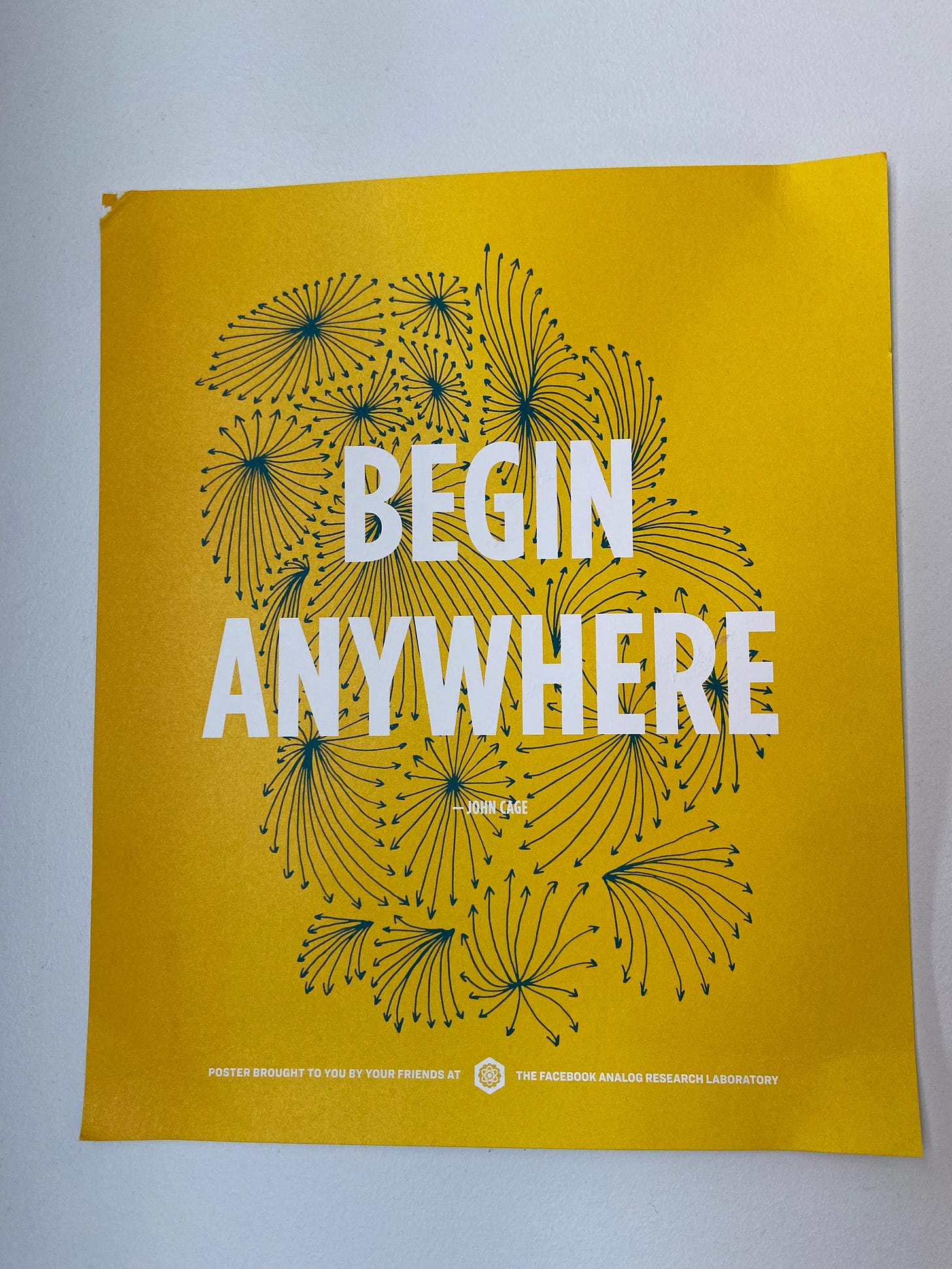At Meta, there's a group called Analog Research Lab. They materialize the cultural maxims many associate with the company: "Move fast and break things", "Don't mistake motion for progress", "Meta, Metamates, Me" and more.
My favorite has always been "Begin Anywhere".
The sheer breadth and depth of Meta's infrastructure, codebase, and business logic make it a significant investment to understand how something works end-to-end. Whether you take a depth-first or breadth-first strategy, you could spend indefinite time exploring.
Despite that complexity, the mindset of starting anywhere is essential.
Engineering at Meta
• Almost all the stack is homegrown: languages/runtime, wire protocols, web frameworks, version control, builds, container orchestration etc. Only some (React, GraphQL, PyTorch) are open source.
• Unlike companies of similar size, Meta's entire codebase is open to engineers internally. An engineer working on React could read Erlang code in WhatsApp or firmware code in Reality Labs.
• Meta historically encouraged bottom-up innovation over central planning. Your mental model can become outdated in quarters, not years. That's how fast things change.
• Growing in seniority requires increasing leverage. Increasing leverage requires broadening and deepening your knowledge of the ecosystem around your team's work. The most successful engineers bend reality to their will or convince the organization to bend reality toward their vision.
Applying "Begin Anywhere"
→ Be strategic about ROI. Is this exploration educational interest, optimistic outreach, or likely to yield near-term results? Clarity here is crucial.
→ Build minimal viable prototypes. Reading and talking are useful, but nothing makes things concrete like changing code and watching it operate.
→ Be a beginner publicly. When a very senior engineer on my team was learning Rust, he live-streamed rebuilding a CLI tool. This brought attention from internal Rust experts eager to help.
→ Stack your learnings. If you understand pieces A and C in a chain A→B→C→D→E, learning B becomes a worthwhile investment.
→ Embrace partial knowledge. You won't get full context, but you can build enough mental maps to operate and establish your bases.
The lesson extends beyond Meta: in any complex system, you have to jump into codebases and problems where you lack context. You can figure it out through code, docs, and asking for help. But most importantly:
Begin anywhere. Be comfortable with uncertainty.


